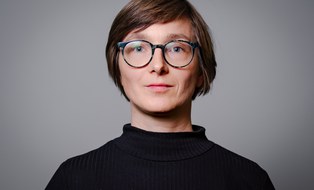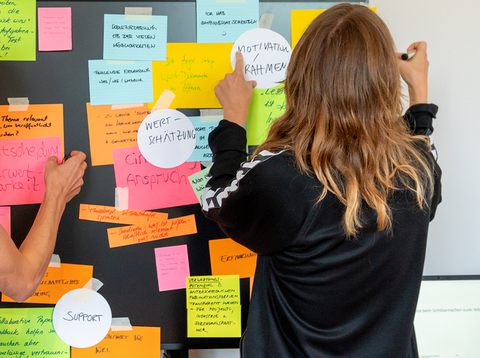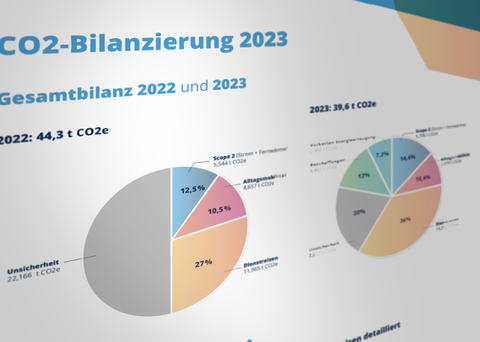Sustainable research. learning to act. The [td] positive lab
We have been pursuing this ambitious goal since the beginning of 2023 and, as a clear sign of our commitment to sustainability, it is now a central component of our work and shapes our research, teaching, transfer projects and day-to-day organization.
We are shaping our Chair into a place of learning for sustainable development and future-oriented action. This is based on a comprehensive sustainability strategy that not only takes into account research and teaching, but also addresses the areas of governance, campus & operations and dialog & transfer. It includes specific measures to reduce CO2 emissions in areas such as electricity consumption, thermal energy, procurement and mobility.
"[td] Positive Lab"
We are developing strategies to make the Chair of Industrial Design Engineering greenhouse gas-neutral - in areas such as electricity consumption, thermal energy, business travel and everyday mobility.
Lab stands for the explorative nature of our work:
- the process of data collection
- the identification of major CO2 emitters
- the development of reduction strategies
- the search for credible compensation measures and our examination of conflicting objectives.
Sustainability gets us talking: How can scientific exchange continue to succeed when air travel needs to be critically scrutinized? How can sustainability be anchored in research and teaching in the long term? And: Can the original goal of making the Chair CO2-neutral be realized?
The responsible use of resources is also an important part of our daily work. For example, we procure our coffee locally in reusable containers. We have developed a participatory scoring system for business trips: when is air travel justified? For us, sustainability starts on a small scale and is understood as a continuous process, from the scientific to the social.
At the beginning of 2023, we set ourselves the goals of becoming climate-neutral (by 2025) and climate-positive by 2028. The basis for this is an increasingly detailed balancing of our own surveys and data from the Central University Administration. We take into account both direct emissions (Scope 1) and indirect emissions (Scope 2 and 3).
Reduction approaches
When selecting measures to reduce our emissions, we are guided by potential impact and feasibility. Air travel has a high impact in the area of mobility. We have therefore introduced a participatory scoring system for conferences and business travel regulations for flights. In the area of procurement, we are initially concentrating on refurbished IT hardware.
Compensation
With the financial support of independently quality-assessed projects, we make a sustainable contribution to binding CO2 emissions in accordance with the Contribution Claim Model.
Site design
We design our main site, for example, with CO2-neutral carpets, ceiling panels made from 60% recycled materials and a ventilation concept for the summer in such a way that ecological, social and economic responsibility are taken into account.
Sustainable research & teaching
Sustainability is a fundamental perspective for all our fields of research In particular, we research and teach on the design of a sustainable circular economy
 © TU Dresden
© TU Dresden
Dipl.-Des. (FH) Christiane Kunath
Communication Designer
Send encrypted email via the SecureMail portal (for TUD external users only).
 © Technisches Design
© Technisches Design
Nikolas Neumann M. Sc.
Research Associate
Send encrypted email via the SecureMail portal (for TUD external users only).


